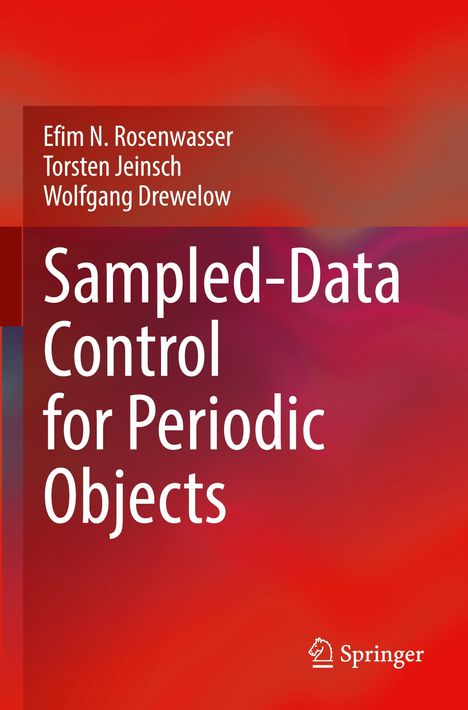Efim N. Rosenwasser: Sampled-Data Control for Periodic Objects
Sampled-Data Control for Periodic Objects
Buch
- Springer International Publishing, 02/2024
- Einband: Kartoniert / Broschiert, Paperback
- Sprache: Englisch
- ISBN-13: 9783031019586
- Artikelnummer: 11755496
- Umfang: 280 Seiten
- Nummer der Auflage: 24001
- Auflage: 1st ed. 2022
- Gewicht: 429 g
- Maße: 235 x 155 mm
- Stärke: 16 mm
- Erscheinungstermin: 4.2.2024
Achtung: Artikel ist nicht in deutscher Sprache!
Weitere Ausgaben von Sampled-Data Control for Periodic Objects
Klappentext
This book is devoted to the problem of sampled-data control of finite-dimensional linear continuous periodic (FDLCP) objects. It fills a deficit in coverage of this important subject. The methods presented here are based on the parametric transfer matrix, which has proven successful in the study of sampled-data systems with linear time-invariant objects. The book shows that this concept can be successfully transferred to sampled-data systems with FDLCP objects. It is set out in five parts:· · an introduction to the frequency approach for the mathematical description of FDLCP objects including the determination of their structure and their representation as a serial connection of periodic modulators and a linear time-invariant object;
· construction of parametric transfer matrix for different types of open and closed sampled-data systems with FDLCP objects;
· the solution of problems of causal modal control of FDLCP objects based on the mathematical apparatus of determinant polynomial equations;
· consideration of the problem of constructing a quadratic quality functional for the H2-optimization problem of a single-loop synchronous sampled-data system with control delay;
· description of the general H2-optimization procedure.
Necessary mathematical reference material is included at relevant points in the book.
Sampled-Data Control for Periodic Objects is of use to: scientists and engineers involved in research and design of systems of systems with FDLCP objects; graduate students wishing to broaden their scope of competence; their instructors; and mathematicians working in thefield of control theory.


